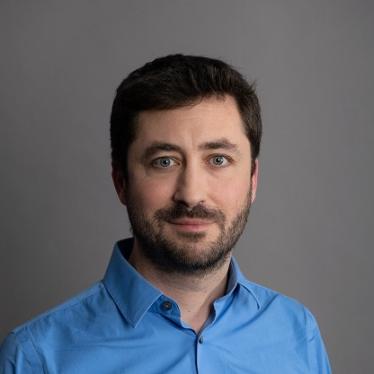Despite 17 months of brutal conflict in Sudan, the country rarely made it to the top of the European Union’s agenda. But next week offers opportunities for European leaders to up their game.
Since April 2023, Sudanese Armed Forces (SAF), Rapid Response Forces (RSF), and allied militias have shown utter disregard for civilian lives. Since then, Human Rights Watch documented indiscriminate airstrikes on populated areas, the ethnic cleansing against Massalit and other non-Arab populations in West Darfur’s El Geneina, and widespread sexual violence in Khartoum by RSF forces. Over 10 million people have fled their homes. One-fourth of Sudanese face famine, as all parties disrupted or blocked aid.
Renewed fighting in North Darfur’s capital, El Fasher, exposes civilians who haven’t already fled, including many internally displaced, to more harm. In the last weeks, fighting has escalated in Khartoum, with both parties using explosive weapons in densely populated areas. Local responders, the main source of support and survival for civilians, face attacks by both parties. Despite a 19-year-old United Nations arms embargo on Darfur, and despite the well documented atrocities, weapons continue to flow into the region, as elsewhere in Sudan. UN experts accused the UAE of providing arms to the RSF and Human Rights Watch found that arms first acquired from their manufacturers by the UAE military have ended up in RSF’s hands.
So, how can the EU do better?
First, the October 16 summit between the EU and the Gulf Cooperation Council is an opportunity to address the UAE’s role in the conflict, publicly press Abu Dhabi to stop supplying arms that will likely be used against civilians, and use its influence with the RSF to urge it to halt indiscriminate attacks in El Fasher.
Second, there is a chance Sudan could be addressed by EU heads of state and government at their own European Councilon October 17-18. Heads of states should support growing calls for robust measures to protect Sudan’s civilians, including the deployment of a mission on the ground. Both the UN and the African Union are expected to soon release recommendations on protecting civilians. Strong EU support on this could make a huge difference.
This week’s speech by top EU diplomat, Josep Borrell, to the European Parliament showed openness on both fronts. But there must be concerted efforts by all actors, at the highest levels, to stop atrocities and protect Sudan’s civilians. Next week’s gatherings in Brussels can help boost the international attention all Sudanese deserve.







